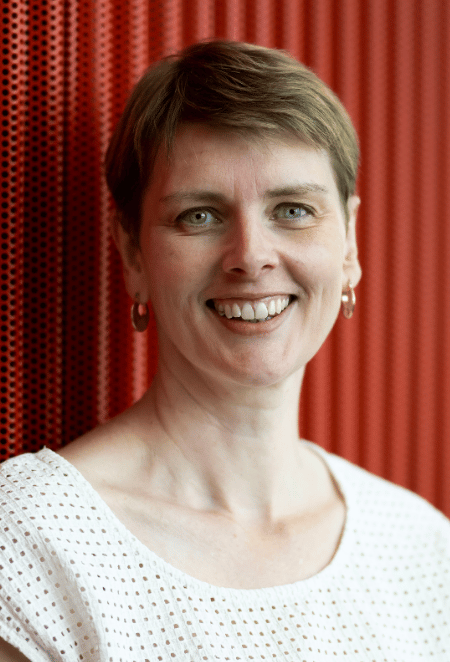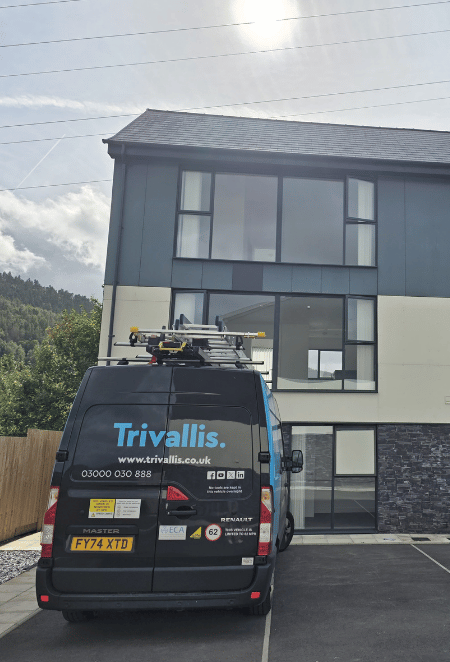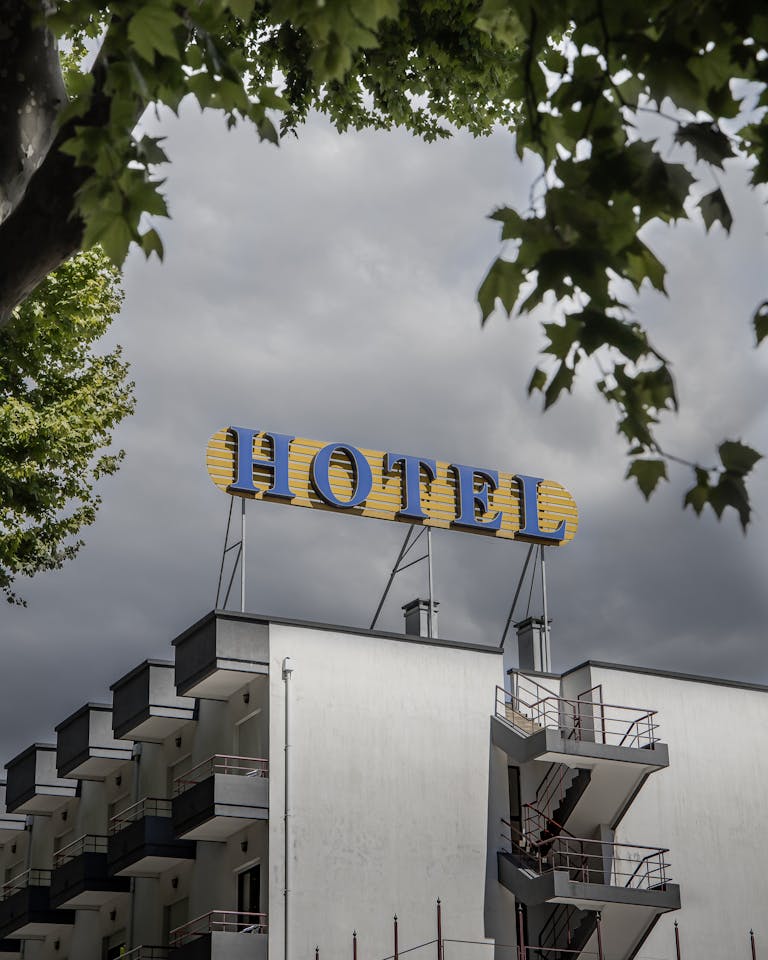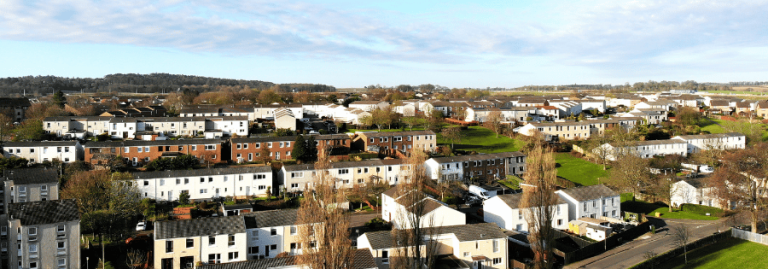Tackling misinformation about housing development in Wales
Catherine Evans, head of communications at Trivallis, explains how the housing association tackled misinformation about who gets new housing. (This article featured in the latest Welsh Housing Quarterly.)


Like many housing associations across Wales and the UK, Trivallis has found itself at the sharp end of a growing problem: misinformation. In recent months, we’ve seen a sharp rise in false or misleading claims posted online about our housing developments. What starts as a simple update about new homes can quickly spiral into a torrent of speculation, fear, and hostility.
This came to a head in June 2025, when a Facebook post from Valley Times sharing our plans for the redevelopment of the Penrhys estate attracted over 130 comments. The post outlined our major regeneration project, which will see around 1,000 new homes built there in the next 10 years. The plans are part of a long-term vision to transform Penrhys into a vibrant, sustainable community, shaped by local voices and designed to address the housing shortage in Rhondda Cynon Taf. Despite this, the online response was dominated by misinformation and hostility:
“Bet it be for immigrants”
“Straight out of the hotels into new housing?”
“…let’s be honest if you’re a migrant you will go first. I know this 100 percent”
“lol you think it’s for locals.”
We were faced with a choice. We could ignore it, as many large organisations do, chalking it up to bots or keyboard warriors with too much time on their hands. After all, the internet moves fast. Within hours, the outrage would shift to another post, another topic.
But we decided to face the misinformation head-on.
A few weeks earlier in May, we’d posted a message about spotting misinformation online. It wasn’t confrontational. We simply wanted to help people recognise dog whistles and question the source of what they were reading. We pointed out the presence of fake accounts and gently reminded our followers that the Valleys have a long tradition of kindness, generosity, and solidarity.
We wrote:
“If you’ve found yourself questioning things lately, or feeling unsure – that’s okay. You’re not alone. This is just a reminder that your kindness, fairness, and care are still there – and they’re needed more than ever.”
It was a small step, but an important one. We wanted to create space for reflection, not argument.
Following the response to our Penrhys post, in July, we went further. We published a clear statement explaining how social housing is allocated. We confirmed that 96 per cent of social homes in Rhondda Cynon Taf are let to people already living locally or with a strong local connection. That’s not a vague promise. It’s a fact, backed by local authority data.
Valley Times shared our statement in a post that received over 300 comments. Sadly, many simply refused to believe it:
“How many will go to the indigenous people of Wales?”
“Nation of Sanctuary incoming”
“Look after our country and the British people first and our vets and homeless”
“Are all these new and approved homes available to legal or illegal immigrants? Come on people, speak your mind!!”
So why did we bother? Because we believe facts matter. And because we believe our communities deserve better than the fear and division that misinformation deliberately sows.
Trivallis is a community mutual. That means we’re rooted in the communities we serve. One of our core aims, beyond building and maintaining high-quality housing, is to create safe and friendly communities where everyone feels welcome. We want to build trust, reduce division, and help people feel proud, supported, and connected to where they live. We can’t do that without tackling misinformation head on.
Most of our staff live locally, and many colleagues are also tenants. We’re not a faceless organisation — we’re people. And when we see or hear negative, misinformed comments about work we genuinely believe benefits our communities, whether online or in our own neighbourhoods, it hurts.
Dealing with misinformation and online hate takes a real toll on our staff, particularly in the communications team. We spend hours monitoring and responding to posts, many of which are deeply insulting, time which could be spent much more productively on other things. Being repeatedly told you’re a “lying scumbag” is not something anyone should have to endure as part of their job.
And it matters most of all because much of the misinformation we see online is overtly racist. I’m a strong believer in building an anti-racist Wales. The Anti-Racist Wales Action Plan calls on individuals and organisations across Wales to actively challenge and call out racist behaviour as part of a collective effort to build an anti-racist nation by 2030. The plan urges people to be proactive: to speak up when they witness racism, to support those affected, and to help create environments where racist attitudes are not tolerated. This includes workplaces, public spaces, online platforms, and everyday interactions.
For me, it’s hard to see how Trivallis can claim to have a meaningful equality, diversity and inclusion (EDI) policy and then stay silent when faced with racist misinformation online. EDI isn’t just about having a document or a training session. It means speaking up when we see injustice, challenging harmful narratives, and making sure our platforms reflect the inclusive communities we say we want to build.
It cuts deep. And it’s painful to see how far we’ve regressed in recent years. Views that were once considered unacceptable are now voiced openly. People say immigrants are taking over, that they get everything, and that white people are under threat. I think that’s wrong and dangerous.
The narrative keeps evolving. In the last month, we’ve seen flags going up across our communities. While many are put up as a sign of civic pride, we’re concerned that some people may not be aware of the political motivations behind certain flag campaigns. We’ve also seen a rise in racist graffiti, including swastikas, on our estates. We have to keep reevaluating our response to developments such as these, and challenging ourselves to respond in a way that best serves our communities.
The issues around housing development, allocations, and raising flags are politically charged, and that makes them difficult to navigate for organisations like Trivallis. Everyone has the right to free speech. It’s not our job to tell people what to believe or how to vote. And it’s certainly not our job to curtail freedom of speech.
But it is our job to make sure our tenants and communities have access to the facts. It’s our job to help people make informed decisions. And when so much of the media is driven by clickbait and outrage, it’s our job to shine a light on the good things happening in our communities. We believe that’s the best way to counter misinformation. Not with confrontation, but by speaking up with clarity, compassion, and truth.







